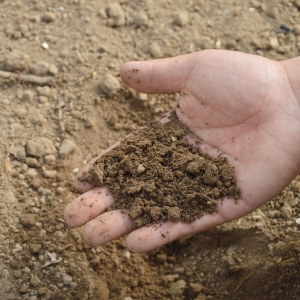
This paper critiques the narrative of soil carbon sequestration as a win-win solution offering climate mitigation as well as improving multiple “soil functions” such as fertility, biodiversity and water retention. It argues that accounting for the likely saturation of soil organic carbon over time significantly reduces the estimated potential contribution of soil carbon sequestration to climate mitigation. Furthermore, it finds that the literature does not show a general positive association between soil organic carbon sequestration and improved crop yields - rather, the effects on yields can be positive, neutral or negative depending on the situation.
Abstract
The role of soil organic carbon (SOC) sequestration as a ‘win-win’ solution to both climate change and food insecurity receives an increasing promotion. The opportunity may be too good to be missed! Yet the tremendous complexity of the two issues at stake calls for a detailed and nuanced examination of any potential solution, no matter how appealing. Here, we critically re-examine the benefits of global SOC sequestration strategies on both climate change mitigation and food production. While estimated contributions of SOC sequestration to climate change vary, almost none take SOC saturation into account. Here, we show that including saturation in estimations decreases any potential contribution of SOC sequestration to climate change mitigation by 53%–81% towards 2100. In addition, reviewing more than 21 meta-analyses, we found that observed yield effects of increasing SOC are inconsistent, ranging from negative to neutral to positive. We find that the promise of a win-win outcome is confirmed only when specific land management practices are applied under specific conditions. Therefore, we argue that the existing knowledge base does not justify the current trend to set global agendas focusing first and foremost on SOC sequestration. Away from climate-smart soils, we need a shift towards soil-smart agriculture, adaptative and adapted to each local context, and where multiple soil functions are quantified concurrently. Only such comprehensive assessments will allow synergies for land sustainability to be maximised and agronomic requirements for food security to be fulfilled. This implies moving away from global targets for SOC in agricultural soils. SOC sequestration may occur along this pathway and contribute to climate change mitigation and should be regarded as a co-benefit.
Reference
Moinet, G.Y., Hijbeek, R., van Vuuren, D.P. and Giller, K.E., 2023. Carbon for soils, not soils for carbon. Global Change Biology, Early View.
Read the full paper here. See also the 2017 FCRN report Grazed and Confused.







Post a new comment »